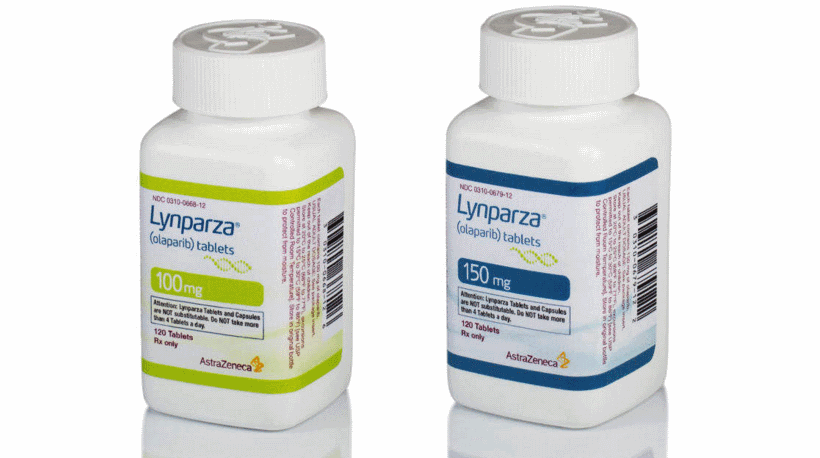NICE backs Lynparza across the board for BRCA+ovarian cancer

AstraZeneca and MSD’s Lynparza has become the first PARP inhibitor to be recommended for all lines of maintenance therapy for BRCA-mutated ovarian cancer via the NHS in England and Wales.
NICE has given a green light to use of Lynparza (olaparib) as a maintenance treatment for patients with relapsed, BRCA-positive ovarian cancer that has responded to platinum chemotherapy, regardless of how many prior lines of chemo they have received.
The cost-effectiveness watchdog has also backed a new tablet formulation of Lynparza – with just two pills given twice-daily – rather than the prior formulation which required eight capsules to be taken twice a day.
As is usually the case, AZ and MSD have offered the drug at a discounted price to secure the recommendation from NICE.
The updated guidance means that the PARP inhibitor will be available routinely on the NHS if they have had three or more courses of platinum-based chemotherapy, and via the Cancer Drugs Fund if they have had two courses. The CDF covers the cost of cancer drugs until confirmatory data – in this case long-term survival data – becomes available.
The latest guidance comes four months after NICE said Lynparza can also be funded through the CDF for the first-line maintenance treatment of women with BRCA-positive ovarian cancer.
The new recommendation will help Lynparza stay ahead of its rivals in the PARP inhibitor category, including Clovis Oncology’s Rubraca (rucaparib) and GlaxoSmithKline’s Zejula (niraparib), at least in BRCA-mutated patients.
Zejula is available on the CDF for second-line maintenance regardless of a patient's BRCA status.
NICE’s latest decision on Lynparza stems from the SOLO-2 trial, which showed that the drug more than trebled the median length of time that patients had without disease progression compared to placebo, reducing the risk of disease progression or death by 70% from 19.1 to 5.5 months.
After 24 months’ follow-up, 43% of the Lynparza-treated arm remained progression-free, compared to 15% of patients on placebo.
AZ notes that in England, almost 60% of women with ovarian cancer are diagnosed with late stage disease and – even after surgery and chemotherapy – more than two thirds (70%) will relapse within three years.
Lynparza is comfortably in the lead in the PARP inhibitor category with sales of $847 million in the first nine months of 2019, while Zejula has brought in $163m for GSK since the company acquired the drug along with Tesaro for $5.1 billion, a deal which closed in January.
Rubraca made a little over $100 million in the first nine months of the year, but growth has stalled with sales sticking in the mid-$30 million range in each quarter.












